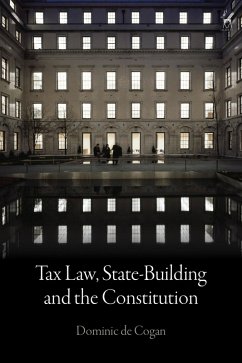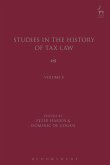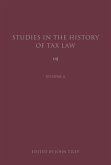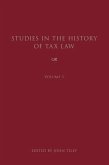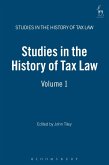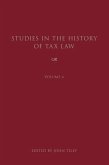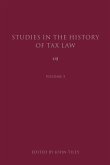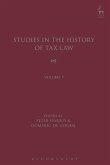This monograph looks at how tax is intertwined with constitutional law and the state in the UK. It looks at a variety of topics including tax devolution, scrutiny and reform of tax legislation, the protection of taxpayers and the domestic legal processing of international rules and problems.
Tax Law, State-Building and the Constitution presents and interrogates five key claims. First, there is a clear overlap between the concerns of tax and constitutional lawyers. Secondly, the tax system is being deeply affected by the fast pace of constitutional change. Thirdly, decisions taken in the tax field are likely to have a reverse influence on the evolution of the constitution. Fourthly, these relationships are heavily context-dependent, with tax making all the difference to some ongoing constitutional controversies whilst having very little to do with others. Fifthly, by acknowledging tax as an important moving part within the contemporary constitution we might understand both tax and constitutional law a little better.
The book therefore contributes to deeper theoretical debates on the identity of tax law as a discipline, the relevance of tax to public lawyers, the meaning of state-building in the recent history of a developed country and the importance of public finances to a wider sense of 'what is going on'. These are questions that ought to command the attention of tax and constitutional law academics as well as policy makers and reformers.
Runner-up of the 2022 SLS Peter Birks Prize for Outstanding Legal Scholarship.
Tax Law, State-Building and the Constitution presents and interrogates five key claims. First, there is a clear overlap between the concerns of tax and constitutional lawyers. Secondly, the tax system is being deeply affected by the fast pace of constitutional change. Thirdly, decisions taken in the tax field are likely to have a reverse influence on the evolution of the constitution. Fourthly, these relationships are heavily context-dependent, with tax making all the difference to some ongoing constitutional controversies whilst having very little to do with others. Fifthly, by acknowledging tax as an important moving part within the contemporary constitution we might understand both tax and constitutional law a little better.
The book therefore contributes to deeper theoretical debates on the identity of tax law as a discipline, the relevance of tax to public lawyers, the meaning of state-building in the recent history of a developed country and the importance of public finances to a wider sense of 'what is going on'. These are questions that ought to command the attention of tax and constitutional law academics as well as policy makers and reformers.
Runner-up of the 2022 SLS Peter Birks Prize for Outstanding Legal Scholarship.

